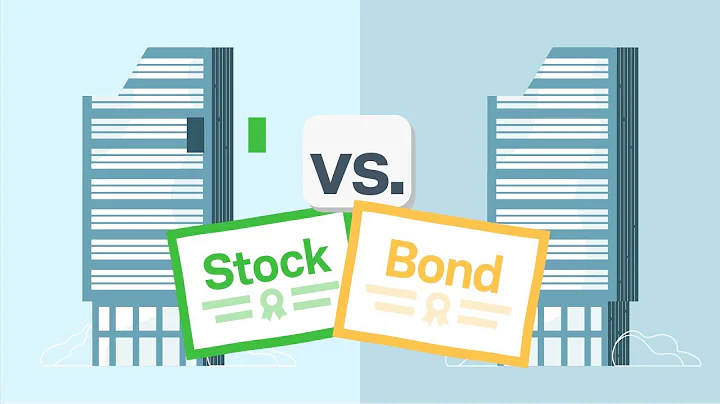What is the difference between bonds and securities?
While stocks are equities, bonds are known as debt securities. With bonds, the company or organization issuing the bond acts as a borrower and raises money from investors to fund projects or expansion efforts. In essence, you are lending money to the issuer.
The term "security" is defined broadly to include a wide array of investments, such as stocks, bonds, notes, debentures, limited partnership interests, oil and gas interests, and investment contracts.
If you choose to invest in a company, there are two routes available to you – equity (also known as stocks or shares) and debt (also known as bonds). Shares are issued by firms, priced daily and listed on a stock exchange. Bonds, meanwhile, are effectively loans where the investor is the creditor.
In the investing sense, securities are broadly defined as financial instruments that hold value and can be traded between parties. In other words, security is a catch-all term for stocks, bonds, mutual funds, exchange-traded funds or other types of investments you can buy or sell.
Fixed-Income securities provide investors with a stream of fixed periodic interest payments and the eventual return of principal at maturity. Bonds are the most common type of fixed-income security. Different bonds have different term lengths depending on how long the issuer wishes to borrow for.
Key Takeaways. Stocks, bonds, preferred shares, and ETFs are among the most common examples of marketable securities. Money market instruments, futures, options, and hedge fund investments can also be marketable securities. The overriding characteristic of marketable securities is their liquidity.
There are four main types of security: debt securities, equity securities, derivative securities, and hybrid securities, which are a combination of debt and equity.
Key takeaways. Treasury bills have short-term maturities and pay interest at maturity. Treasury notes have mid-range maturities and pay interest every 6 months. Treasury bonds have long maturities and pay interest every 6 months.
Given the numerous reasons a company's business can decline, stocks are typically riskier than bonds. However, with that higher risk can come higher returns. The market's average annual return is about 10%, not accounting for inflation.
As you can see, each type of investment has its own potential rewards and risks. Stocks offer an opportunity for higher long-term returns compared with bonds but come with greater risk. Bonds are generally more stable than stocks but have provided lower long-term returns.
Why buy bonds instead of stocks?
Stocks offer ownership and dividends, volatile short-term but driven by long-term earnings growth. Bonds provide stable income, crucial for wealth protection, especially as financial goals approach, balancing diversified portfolios.
Treasury bonds and Treasury bills are both debt securities issued by the U.S. government, but they have different maturity dates and payment structures. Treasury bonds have maturities of 20 or 30 years and pay interest every six months.

Bonds are debt instruments. They are a contract between a borrower and a lender in which the borrower commits to make payments of principal and interest to the lender, on specific dates.
The people who purchase a bond receive interest payments during the bond's term (or for as long as they hold the bond) at the bond's stated interest rate. When the bond matures (the term of the bond expires), the company pays back the bondholder the bond's face value.
Savings Bonds Overview
They are low-risk, interest-bearing securities that individual investors can purchase directly from the government on TreasuryDirect.
Securities are fungible and tradable financial instruments used to raise capital in public and private markets. There are primarily three types of securities: equity—which provides ownership rights to holders; debt—essentially loans repaid with periodic payments; and hybrids—which combine aspects of debt and equity.
In the United States, the term broadly covers all traded financial assets and breaks such assets down into three primary categories: Equity securities – which includes stocks. Debt securities – which includes bonds and banknotes. Derivatives – which includes options and futures.
If you've done any investing at all, you're probably familiar with the more common terms describing traditional securities: stocks, bonds, exchange-traded funds (ETFs), mutual funds, and so on.
Briefly, an ETF is a basket of securities that you can buy or sell through a brokerage firm on a stock exchange. ETFs are offered on virtually every conceivable asset class from traditional investments to so-called alternative assets like commodities or currencies.
Investment securities provide banks with the advantage of liquidity, in addition to the profits from realized capital gains when these are sold. If they are investment-grade, these investment securities are often able to help banks meet their pledge requirements for government deposits.
Is a mutual fund a security?
Like stocks, mutual funds are considered equity securities because investors purchase shares that correlate to an ownership stake in the fund as a whole.
T-bills have a key advantage over CDs: They're exempt from state income taxes. The same is true with Treasury notes and Treasury bonds. If you live in a state with income taxes, and rates are similar for CDs and T-bills, then it makes sense to go with a T-bill.
To calculate the price, take 180 days and multiply by 1.5 to get 270. Then, divide by 360 to get 0.75, and subtract 100 minus 0.75. The answer is 99.25. Because you're buying a $1,000 Treasury bill instead of one for $100, multiply 99.25 by 10 to get the final price of $992.50.
While interest rates and inflation can affect Treasury bill rates, they're generally considered a lower-risk (but lower-reward) investment than other debt securities. Treasury bills are backed by the full faith and credit of the U.S. government. If held to maturity, T-bills are considered virtually risk-free.
Some of the disadvantages of bonds include interest rate fluctuations, market volatility, lower returns, and change in the issuer's financial stability. The price of bonds is inversely proportional to the interest rate. If bond prices increase, interest rates decrease and vice-versa.